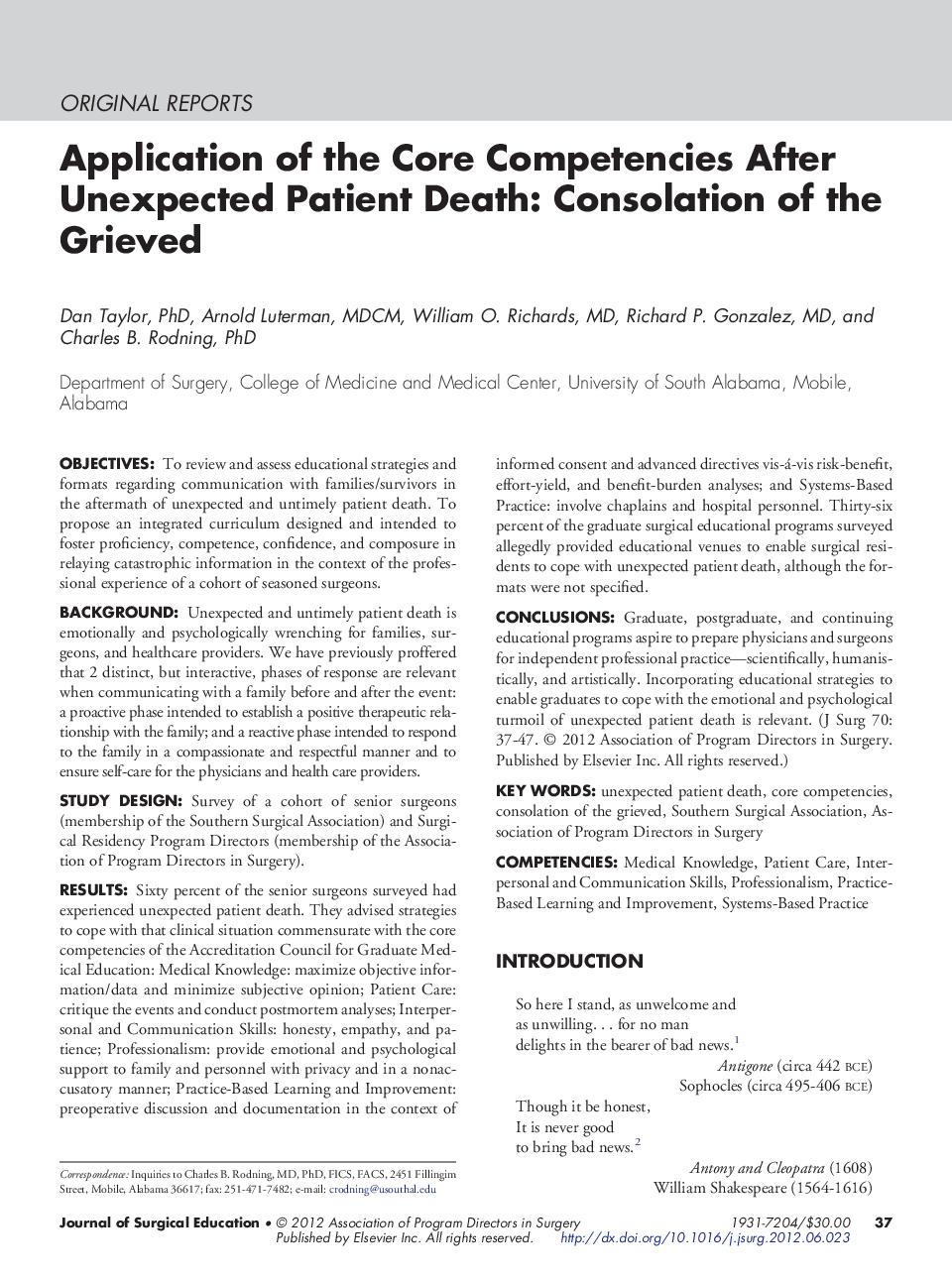| Article ID | Journal | Published Year | Pages | File Type |
|---|---|---|---|---|
| 4298328 | Journal of Surgical Education | 2013 | 11 Pages |
ObjectivesTo review and assess educational strategies and formats regarding communication with families/survivors in the aftermath of unexpected and untimely patient death. To propose an integrated curriculum designed and intended to foster proficiency, competence, confidence, and composure in relaying catastrophic information in the context of the professional experience of a cohort of seasoned surgeons.BackgroundUnexpected and untimely patient death is emotionally and psychologically wrenching for families, surgeons, and healthcare providers. We have previously proffered that 2 distinct, but interactive, phases of response are relevant when communicating with a family before and after the event: a proactive phase intended to establish a positive therapeutic relationship with the family; and a reactive phase intended to respond to the family in a compassionate and respectful manner and to ensure self-care for the physicians and health care providers.Study DesignSurvey of a cohort of senior surgeons (membership of the Southern Surgical Association) and Surgical Residency Program Directors (membership of the Association of Program Directors in Surgery).ResultsSixty percent of the senior surgeons surveyed had experienced unexpected patient death. They advised strategies to cope with that clinical situation commensurate with the core competencies of the Accreditation Council for Graduate Medical Education: Medical Knowledge: maximize objective information/data and minimize subjective opinion; Patient Care: critique the events and conduct postmortem analyses; Interpersonal and Communication Skills: honesty, empathy, and patience; Professionalism: provide emotional and psychological support to family and personnel with privacy and in a nonaccusatory manner; Practice-Based Learning and Improvement: preoperative discussion and documentation in the context of informed consent and advanced directives vis-á-vis risk-benefit, effort-yield, and benefit-burden analyses; and Systems-Based Practice: involve chaplains and hospital personnel. Thirty-six percent of the graduate surgical educational programs surveyed allegedly provided educational venues to enable surgical residents to cope with unexpected patient death, although the formats were not specified.ConclusionsGraduate, postgraduate, and continuing educational programs aspire to prepare physicians and surgeons for independent professional practice—scientifically, humanistically, and artistically. Incorporating educational strategies to enable graduates to cope with the emotional and psychological turmoil of unexpected patient death is relevant.
